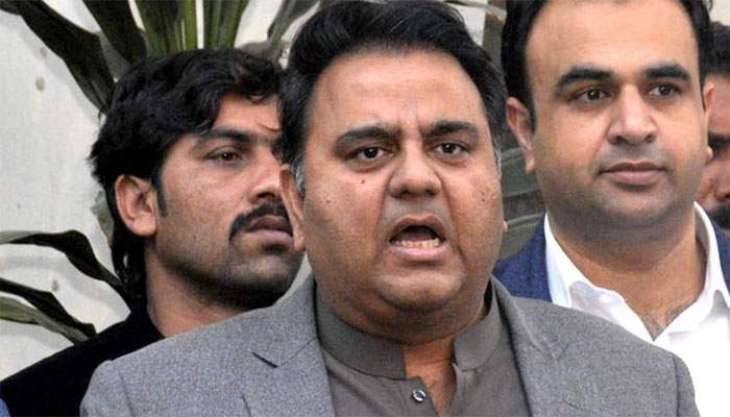
ISLAMABAD: Federal Minister for Science and Technology Fawad Chaudhry has said that a calendar showing main Islamic dates and months for the next five years based on scientific evidence would be ready and placed before the cabinet by the 15th of Ramazan.
The move is stated to be aimed at ending perpetual uncertainty over moon-sighting in the country.
Addressing a press conference on Wednesday, Fawad said they had tremendous respect for clerics and religious leaders who might be good at their jobs “but these elderly people can barely see people in front of them clearly let alone spot a fine crescent”.
“We cannot understand the stubbornness of the religious leaders who insist on sighting the moon alone. Moon-sighting is a scientific process. Science can precisely tell the birth of the moon and that is why Imam Shafai described moon-sighting as an arithmetic process,” he said.
Explaining how the telescopes used by Ruet-i-Hilal Committee members were hundreds-of-years-old obsolete equipment, the minister said his office will rely on advanced telescopes of the Met Department.
“A process has been developed on confirmed crescent sightings based on indisputable astronomical information, which nobody should object to,” the minister said.
Anticipating that the plan may face opposition, he said, “I reiterate that the ministry does not intend to impose its findings but provide an alternative opinion.”
Fawad had formed a committee of five experts from the ministry of science and technology, Meteorological Department and the Pakistan Space and SUPARCO to determine moon-sighting for key Islamic dates and months scientifically putting an end to the practice of looking for it physically through telescopes.
Responding to a question about ulema cautioning the government to stay away from religious matters, Fawad retorted, “Our interpretation of religion is better than theirs.”
Soon after Fawad’s initial statement, Ruet-i-Hilal Committee Chairman Mufti Muneeb-ur-Rehman had cautioned the minister to refrain from commenting on religious matters.
The move is stated to be aimed at ending perpetual uncertainty over moon-sighting in the country.
Addressing a press conference on Wednesday, Fawad said they had tremendous respect for clerics and religious leaders who might be good at their jobs “but these elderly people can barely see people in front of them clearly let alone spot a fine crescent”.
“We cannot understand the stubbornness of the religious leaders who insist on sighting the moon alone. Moon-sighting is a scientific process. Science can precisely tell the birth of the moon and that is why Imam Shafai described moon-sighting as an arithmetic process,” he said.
Explaining how the telescopes used by Ruet-i-Hilal Committee members were hundreds-of-years-old obsolete equipment, the minister said his office will rely on advanced telescopes of the Met Department.
“A process has been developed on confirmed crescent sightings based on indisputable astronomical information, which nobody should object to,” the minister said.
Anticipating that the plan may face opposition, he said, “I reiterate that the ministry does not intend to impose its findings but provide an alternative opinion.”
Fawad had formed a committee of five experts from the ministry of science and technology, Meteorological Department and the Pakistan Space and SUPARCO to determine moon-sighting for key Islamic dates and months scientifically putting an end to the practice of looking for it physically through telescopes.
Responding to a question about ulema cautioning the government to stay away from religious matters, Fawad retorted, “Our interpretation of religion is better than theirs.”
Soon after Fawad’s initial statement, Ruet-i-Hilal Committee Chairman Mufti Muneeb-ur-Rehman had cautioned the minister to refrain from commenting on religious matters.
